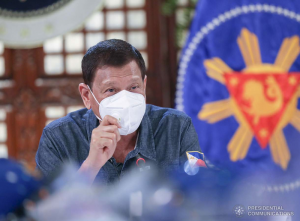The Philippines has placed more than 27 million people in and around its capital city back into lockdown until at least August 15 in an attempt to stop a record surge of COVID-19 infections after health workers pleaded for stricter measures to soften the burden on the country’s crowded hospitals.
The country’s total coronavirus cases hit 119,460 on Thursday after reporting 3,561 new cases, overtaking Indonesia as the Southeast Asian country with the highest number of infections.
Lockdown restrictions had been gradually eased in Metro Manila after a strict quarantine that eclipsed the length of the lockdown in Wuhan.
But record jumps in coronavirus cases led President Rodrigo Duterte, who has faced growing criticism for his response to the pandemic, to heed the calls of health workers and tighten lockdown measures in the nation’s capital.
The Philippines had attempted to reopen its struggling economy, which plunged into recession after shrinking by 16.5 percent during the second quarter compared to 2019, the Philippine Statistics Authority said Thursday.
Benjamin Diokno, head of the country’s central bank, expressed optimism that a new stimulus bill would lead to a recovery in 2021, saying that “the worst is behind us.” But other analysts have warned that unemployment and continued rises in COVID-19 cases could lead to a slower than expected recovery.
Prior to Thursday’s release of official economic data, presidential spokesperson Harry Roque had warned the economy “can no longer handle an even longer lockdown.”
Filipino health workers had pleaded for a lockdown of Manila last week in a joint statement by doctors’ groups concerned after several record high daily rises in new cases left the country’s overburdened health system in need of a “time out.”
Many hospitals in Manila have closed their doors to new COVID-19 patients due to operating at full capacity, while two major hospitals temporarily closed last week after health workers became infected with the coronavirus.
The joint statement had asked Duterte to lock down Manila and nearby provinces for at least two weeks and to “recalibrate strategies against COVID-19” during the quarantine period.
Duterte responded by lashing out at health workers during a televised speech aired on Sunday, lambasting the doctors’ groups for authoring the letter.
“There is no need for you and for the guys, 1,000 of you, telling us what to do publicly. You could have just written us a letter,” he said, insisting that the government “will not abandon its workers.”
The president later adopted a harsher tone, apparently perceiving the letter as a criticism of his government’s coronavirus response.
“I don’t give a fuck if you gather one thousand, two thousand, but bear in mind… We are not incompetents here because we are not doctors,” he said. “You do nothing but complain… What can I do? I have always been praying to God for a vaccine.”
Duterte has stood by Francisco Duque III, the country’s embattled health secretary, despite growing calls among health workers and legislators for his resignation.
Duque faced pressure in April after a majority of Philippines senators passed a resolution calling for his resignation. But he has retained the support of Duterte despite growing public distrust of his agency’s coronavirus response, along with allegations of corruption.
The recent surge in cases compelled lawmakers on Thursday to urge that the start of classes in public schools be delayed from their planned start date of August 24. Many students in the Philippines do not have consistent internet access and lawmakers also raised concerns about inadequate funding for schools as they prepare to hold classes.
The Manila lockdown has also limited available public transportation for those with passes to move around the city.
On Thursday, a group of health professionals called for the government to allow the country’s jeepneys to operate. The traditional vehicles, which many Filipinos rely on for low-cost commutes, have been banned from operation by the government’s COVID-19 task force despite health professionals insisting their open-air design makes them safer than other forms of public transportation.

































